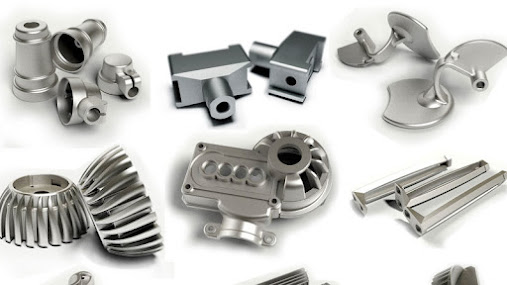Aluminum Casting Market: A Comprehensive Analysis of Global Trends and Growth Opportunities
The aluminum casting market refers to the global industry involved in the production and supply of aluminum castings. Aluminum casting is a manufacturing process that involves the pouring of molten aluminum into a mold to create various shapes and sizes of solid metal components. These castings are widely used in a wide range of industries, including automotive, aerospace, construction, electrical, and consumer goods.
Here is some comprehensive information about the aluminum casting market:
Market Overview:
The aluminum casting market has experienced significant growth over the years, driven by the increasing demand for lightweight and durable components in various industries. Aluminum castings offer several advantages, including excellent corrosion resistance, high strength-to-weight ratio, good thermal conductivity, and high dimensional stability.
Types of Aluminum Castings:
There are several types of aluminum castings, including die casting, sand casting, permanent mold casting, and investment casting. Die casting is the most common method and involves injecting molten aluminum under high pressure into a steel mold. Sand casting utilizes sand molds, while permanent mold casting uses reusable molds made of steel or iron. Investment casting involves creating wax patterns that are coated with ceramic, and the molten aluminum is poured into the ceramic mold.
Market Drivers:
The aluminum casting market is primarily driven by the growth in industries such as automotive and aerospace. The automotive industry, in particular, demands lightweight components to improve fuel efficiency, reduce emissions, and enhance overall performance. Aluminum castings provide an ideal solution due to their lightweight nature and strength. Additionally, the aerospace industry relies on aluminum castings for various critical components due to their high strength and heat resistance.
Market Trends:
a. Increasing Use of Aluminum in Electric Vehicles: The growing demand for electric vehicles (EVs) has led to an increased use of aluminum castings in their production. Aluminum components, such as motor housings, battery enclosures, and structural parts, help reduce the weight of EVs and improve their range.
b. Adoption of Advanced Casting Technologies: The aluminum casting industry is witnessing the adoption of advanced technologies such as computer-aided design (CAD), computer-aided engineering (CAE), and simulation software. These technologies enable manufacturers to optimize casting designs, reduce defects, and enhance overall product quality and efficiency.
c. Sustainable Practices: The aluminum casting market is also focusing on sustainable practices by implementing recycling programs for aluminum scrap. Recycling aluminum not only reduces waste but also helps conserve energy and natural resources, making it an environmentally friendly choice.
Regional Market Analysis:
The aluminum casting market is globally distributed, with key regions including North America, Europe, Asia Pacific, Latin America, and the Middle East and Africa. Asia Pacific is the largest market, driven by rapid industrialization, increasing automotive production, and infrastructure development. North America and Europe also hold significant market shares due to the presence of established automotive and aerospace industries.
Key Players:
The aluminum casting market is highly competitive, with several key players operating on a global scale. Some of the prominent companies in the market include Alcoa Corporation, Nemak, Arconic, Ryobi Limited, UACJ Corporation, Endurance Technologies Ltd, Dynacast International, and Gibbs Die Casting Corp.
Challenges:
The aluminum casting market faces challenges such as fluctuating raw material prices, strict environmental regulations, and competition from alternative materials. Additionally, ensuring consistent quality and reducing casting defects are ongoing concerns for manufacturers.
Future Outlook:
The aluminum casting market is expected to continue growing in the coming years, driven by the demand for lightweight materials, advancements in casting technologies, and the expansion of end-use industries. The increasing focus on sustainability and the adoption of recyclable aluminum will also contribute to market growth.
In conclusion, the aluminum casting market plays a vital role in various industries, offering lightweight, durable, and versatile components. With the increasing demand for aluminum castings, the market is poised for steady growth, fueled by technological advancements, sustainability practices, and evolving industry requirements.



.png)
Comments
Post a Comment